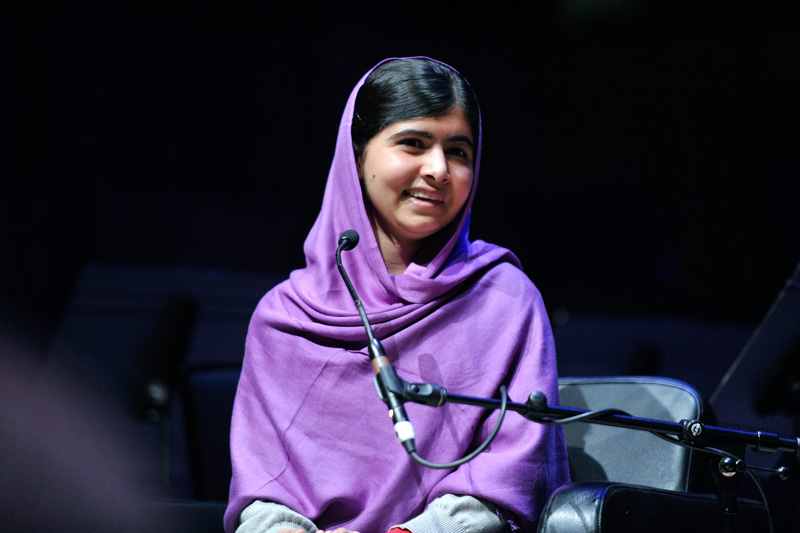
As part of the Scholars At Risk Speaker Series, Dr Shirin Zubair addressed Trinity students in the GMB yesterday on the threats to academic freedom found in conflict zones around the world.
The event, titled “Malala in Context: Gender Education and Academic Freedom in Pakistan” was organised by the Theological Society; the Department of Near Middle Easter Studies; and the School of Languages, Literatures and Cultural Studies.
Scholars at Risk is an international organisation which aims to draw attention to the attacks on scholars’ liberty, livelihood and academic freedom that are taking place all over the world. Such attacks mainly stem from the actions and threats of extremists and dictators who wish to curtail access to information and the development of independent thought.
The organisation has a 400-member network of third-level institutions, including Trinity. This network offers positions of sanctuary to at-risk scholars by hosting them as lecturers, researchers or students. Dr Zubair came into contact with Scholars At Risk when her life came under threat while lecturing in Pakistan. She was subsequently offered sanctuary through a teaching post in the University of Cardiff.
In her address, Dr Zubair, a leading academic in English Literature and Gender Studies, spoke about the cultural heterogeneity in her native Pakistan, from the highly westernised city cultures of Lahore to the intense islamification taking place in Dr. Zubair’s own home city of Multan.
According to Zubair, when explaining the root cause of threats to academic freedom and female education in Pakistan, “it is not as easy as simply blaming religion.” Rather, she argues that culture and state policy is equally, if not more, influential on the situation. She illustrated her point with a reference to the prophet Mohammad as “potentially the world’s first feminist… he did not force his first wife to give up work when they married.”
In the 1980s, when Zubair was a university student, her lecturer reminisced on the protesting that Pakistani women initiated against the criminalisation of femal adultery and in favour of a more open society. In response, the Islamic Ideology Council was set up and, among other consequences, Dr Zubair referenced the noticeable increase and normalisation of burqas throughout Pakistan, “even in the universities.” Using the arts as a peaceful retaliation to what was perceived as a regressive move, Dr Zubair directed a satirical play called “Burqa Vagensa”, in which student actors undermined the seriousness of conservatism by acting out melodramatic shock at full exposure of a female face in public. The play was subsequently banned but temporarily catalysed an alternative viewpoint within Pakistani culture.
Speaking about those who oppose extremism, Zubair referenced Malala Yousafzai and Benazir Bhutto. 18 year old Malala, who began as a child activist for equal education, attracted international attention in 2012 when she was shot in the head by a Taliban gunman. Despite being awarded numerous peace awards, including the Nobel Peace Prize 2014, Dr Zubair described the conflict in public opinion towards Malala. She described how the Taliban denied responsibility for the event and claimed that the US Special forces were responsible for the attack. They used her near-fatal injuries to attract international attention and to justify their involvement in Pakistan. Public opinion remains divided as some subsequently deduced that Malala and her father were US spies in the region. The work and legacy of Benazir Bhutto, as the first female Prime Minister in the Islamic world, was also outlined by Zubair.
When asked about education as a tool for empowerment, the academic described a “bifurcation of learning in Pakistan… three school systems exist from elitist to lower class” In elitist schools, a Western education is provided with Oxford and Cambridge textbooks. Yet, Zubair went on to describe how “there is a mindset towards valuing religious over secular education… even though qualifications from such religious seminaries mean you cannot be employed by the government.”
The Scholars At Risk Speaker Series continues next week with talks taking place in Ulster University and Queens University Belfast. The series culminates with Dr Zubair appearing as keynote speaker at the annual Erasmus+ lecture, jointly organised by the Higher Education Authority and Universities Ireland, on October 29th in Maynooth.






